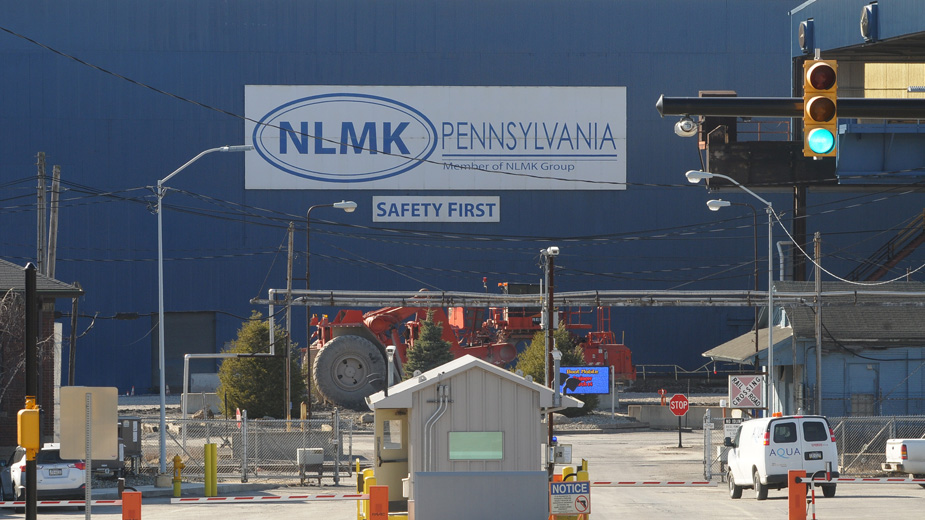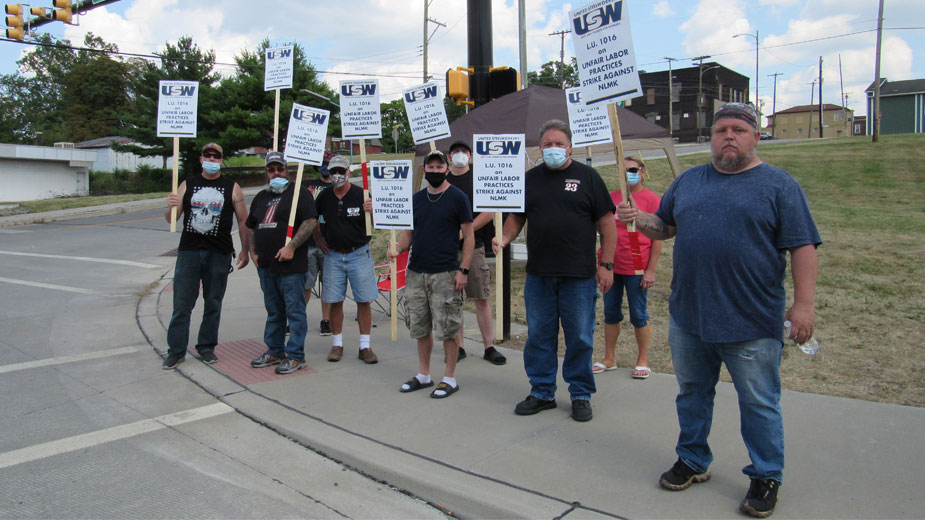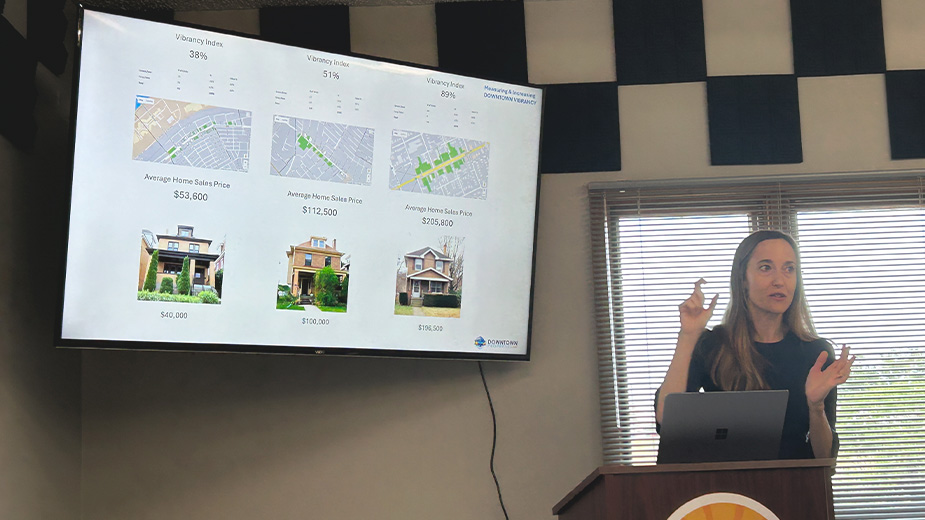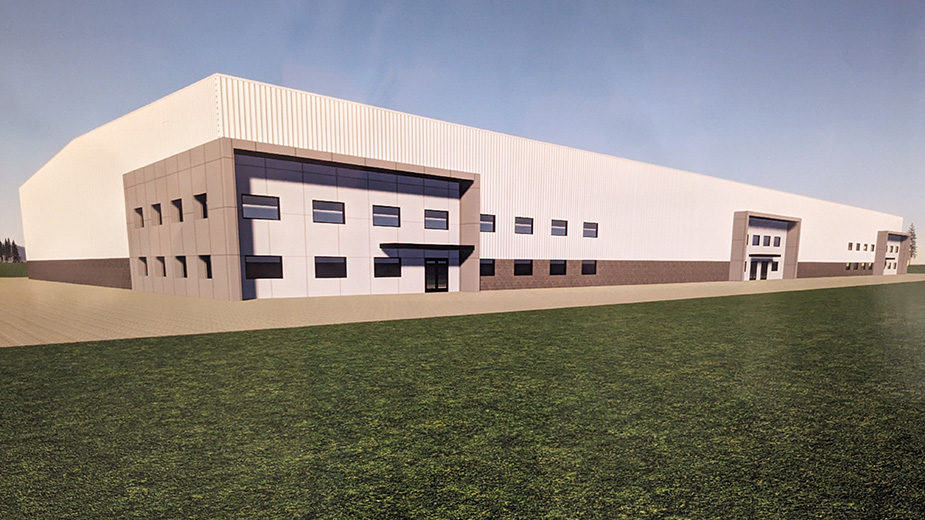Steelworkers Offer to Meet with NLMK, Still at Odds on Health Care
FARRELL, Pa. — Negotiators bargaining on behalf of United Steelworkers Local 1016-03 look to resume negotiations with NLMK USA next Wednesday.
As of Wednesday evening, the union was awaiting a response from NLMK to continue negotiations for the next contract, says Stephen “Shane” Carlin, a member of the bargaining unit with the union’s International in Pittsburgh and lead bargainer for the Local 1016-03 negotiations. Some 400 workers of the local have picketed outside the Martin Luther King Jr. Blvd. plant since Aug. 22, alleging unfair labor practices.
Central to the strike is health care and a proposed high-deductible plan that, in the past, membership has overwhelmingly rejected. To date, just 44 of the company’s 400 union workers have opted for the plan rather than the current preferred provider organization, or PPO, health care plan.
The union counter-offered an alternative health care plan that, Carlin says, both sides agreed would save the company $250,000 in the first year of the contract. But the company still rejected the offer “because they want to align our health care plan with the plan they forced the salaried workforce into,” he says.
While the USW isn’t opposed to the high-deductible plan being offered as a choice, it says the premium changes in the company’s last offer are unaffordable and will price workers out of the PPO plan, causing a “forced migration” of workers into the high-deductible plan, Carlin says.
In a statement released to the press Tuesday evening, NLMK explains the PPO plan, under the last offer, would include annual premium increases of $50 over the course of the four-year agreement. Premiums for family coverage would start at $185 monthly and increase by that $50 increment to $385 monthly in the final year of the contract.

“We have made it clear that it is our desire to transition our employees from a PPO to a high deductible plan,” the company states in its release. “The truth is that our last offer on the high deductible plan would actually cost less to the employee than their current PPO plan.”
The premium increases, however, are five times higher than in past contracts, asserts Carlin. Traditionally, the union has agreed to annual premium increases of $10.
“Their continuing the PPO plan with that cost is really just their cynical attempt to force the employees into the high deductible,” he says. “We’re not opposed to the high-deductible plan as an option. But we want employees to go into it by their choice.”
The union has gone as far as to say that if 50% of the membership voluntarily enter into the high-deductible plan, they agree that it would displace the existing PPO plan, he adds. However, the high-deductible plan has been rejected by a majority of the membership for the past three contracts.
“It’s just a plan the employees do not trust and do not want,” he says.
One reason for the rejection is the initial transitional payments, he continues. In the first year, the company would put seed money into workers’ plans, but they aren’t required to do so in future years. “We would have to bargain for that,” he says.
Without that seed money, it could put workers into a situation where they can’t afford to cover their health care costs, he says.
In August, NLMK said it would contribute $2,350 into a health-care savings account annually for the first three years of the new contract and $1,550 for the fourth year. It further stated that the maximum yearly expense an employee will be responsible for is $2,150 annually for the first three years of the contract. The company says employees will “absolutely pay less” for the coverage than under the current plan.
“The average employee pay increase contained in our last offer would be more than double the amount of premium increases we have proposed to their current PPO without even factoring in the extensive overtime, holiday, or shift differential pay that they would receive under the contract,” the company stated. “Also, it is important to keep in mind that the high deductible plan would offer the same benefit coverages they have today under their PPO at a lower cost to the employees. The move from their PPO to the high deductible plan would actually result in an increase [in] the average employee’s take home pay.”
The company goes on to state that the local’s former president and other members of its bargaining committee chose the high-deductible plan.
“Current union leadership for some reason is not willing to admit that the high deductible healthcare plan coupled with our offer to make contributions into each employee’s health savings account will reduce the cost of healthcare for their members,” the company continued.
The increased cost of the annual premium increases would still cut into any wage increases offered, Carlin says. Further, the company regressed its wage offerings by half a percentage point in each year of the proposed collective bargaining agreement “and also eliminated lump sum payments that have been offered,” he says.
“Those wage reductions came in response to our standalone proposal to make sure individuals who might die in the course of their employment would have their insurance continue for surviving family members to the end of the month,” Carlin says.
The company agreed to the proposal, which was introduced after the surviving members of a deceased union worker’s family had their health coverage cut the day he died.
In a video statement posted to the USW Steelworkers 1016 Facebook page Sept. 1, Jackie Verzilli said NLMK canceled her health insurance on July 3, the day her husband, Randy, died in a motorcycle accident.
“I was not informed of this until my appointment with HR on July 9 at 10:45 a.m.,” Verzilli said in the video.
When she asked why she didn’t have 30 days to keep her insurance, she said she wasn’t given an answer. Though the medical coverage was paid for on her husband’s July 3 pay in the amount of $83, the company has not reimbursed the premium, she alleged.
In the video, Verzilli said the union advised her the company would pay for Cobra benefits for a month, but she would have to complete the required paperwork. On July 22, she told union leadership she was unsure how to fill it out or who should receive it and they provided her contact information to the human resources department at NLMK.
Verzilli says the HR representative didn’t call her until Aug. 21 after the union filed a labor dispute. That was 18 days after Cobra expired, she said.
NLMK has stated it offered to pay for the first 30 days of Cobra benefits for Verzilli’s family, a practice that it states has been consistent through the years. The company alleges the union “is acutely aware of this long-standing practice,” and alleged the union was using Verzilli’s death “as a rallying cry during negotiations.”
The strike has also brought up another matter of a walking beam furnace that was to be installed by 2018, but never was. Union leadership argues that during the 2016 contract negotiations, it agreed to forgo wage increases so NLMK could invest in the walking beam furnace.
While the union never got a written deal, the company “gave us the assurance that if we could do this, they would use the money to invest in a walking beam furnace,” Carlin says.
In its statement this week, NLMK says it’s in the process of installing the walking beam furnace, adding that the reason for the delay is because the furnace is part of a planned $600 million investment into the plant that was delayed because of tariffs placed on imported steel by President Donald Trump’s administration.
“These investments have been significantly reconsidered once the Trump administration imposed tariffs on the slabs of steel we import to convert into steel coils,” according to the company statement. “It is ironic that the same United Steelworkers union that represents the NLMK Farrell workers has lobbied extensively for strong import controls and supports the Section 232 tariffs on imported steel slabs that directly impacts the continued livelihood and futures of its union members.”
Carlin responded by saying the Trump administration’s tariffs weren’t supposed to be an issue in contract negotiations.
“Quite frankly, at the start of the negotiations, [NLMK USA President and CEO] Bob Miller said the status and situation with tariffs would not impact the bargaining and they wouldn’t be raised in the bargaining,” Carlin says.
Related coverage:
Aug. 27, 2020 | NLMK Refutes Union, Accuses USW of ‘Campaign of Lies’
Aug. 25, 2020 | Union Members Picket Round-the-Clock Outside NLMK
Aug. 21, 2020 | Steelworkers Notify NLMK of Strike Plans
June 26, 2020 | Labor Negotiations Between NLMK, Steelworkers Stall
Copyright 2024 The Business Journal, Youngstown, Ohio.



